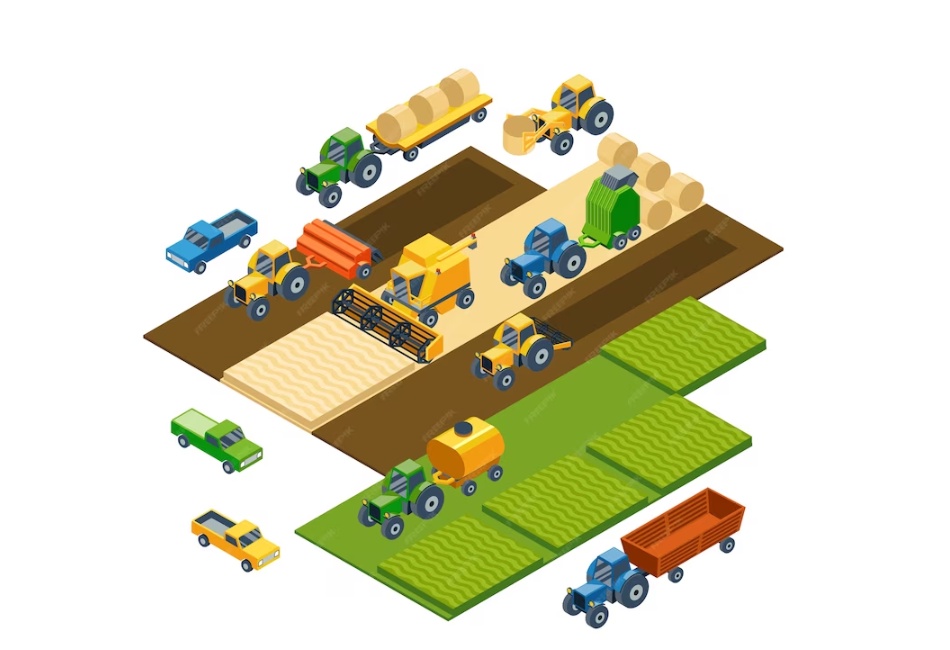In the realm of logistics and transportation, efficiency is paramount. One method that has gained significant traction in recent years is bulk tipper haulage. This specialized form of transportation offers numerous advantages for businesses involved in the movement of bulk materials, ranging from aggregates and construction materials to agricultural products and waste. In this article, we delve into the intricacies of bulk tipper haulage, exploring its mechanics, benefits, and applications in the contemporary transportation landscape.
Understanding Bulk Tippers:
Bulk tippers, also known as bulk trailers or bulk carriers, are vehicles designed specifically for the transportation of loose bulk materials. Unlike traditional flatbed trucks or box trailers, bulk tippers feature a tipping mechanism that allows for efficient unloading of cargo. These trailers typically have an open-top design, facilitating easy loading and unloading of materials such as sand, gravel, coal, grain, or waste.
The Mechanics of Bulk Tipper Haulage:
Bulk tipper haulage involves the use of specialized vehicles equipped with tipping mechanisms to transport large quantities of loose materials from one location to another. The process begins with the loading of the bulk material into the trailer, either through a loading chute or by using mechanical equipment such as conveyor belts or loaders. Once loaded, the trailer is secured, and the transportation phase begins.
During transit, the bulk tipper operates like any other heavy goods vehicle, navigating roads and highways to reach its destination. However, what sets bulk tippers apart is their ability to discharge cargo quickly and efficiently upon arrival. When the vehicle reaches the designated unloading point, the tipping mechanism is activated, causing the trailer to tilt and the cargo to be discharged rapidly. This process minimizes the time required for unloading and maximizes operational efficiency.
Benefits of Bulk Tipper Haulage:
-
Cost-Effectiveness: Bulk tipper haulage offers cost savings compared to other forms of transportation, especially for bulk materials. The efficiency of the tipping mechanism reduces labor costs associated with loading and unloading, while the ability to transport large volumes in a single trip lowers fuel and maintenance expenses.
-
Time Efficiency: The rapid unloading capability of bulk tippers saves valuable time for both the supplier and the recipient. This increased efficiency translates into faster turnaround times, allowing businesses to meet tight deadlines and respond promptly to customer demands.
-
Versatility: Bulk tippers are versatile vehicles capable of transporting a wide range of materials, from construction aggregates and industrial minerals to agricultural products and waste. This versatility makes them invaluable assets across various industries, from construction and mining to agriculture and waste management.
-
Reduced Environmental Impact: By optimizing load capacities and minimizing unnecessary trips, bulk tipper haulage helps reduce carbon emissions and environmental impact. Additionally, the use of advanced technologies such as aerodynamic designs and fuel-efficient engines further enhances the sustainability of bulk transportation operations.
-
Improved Safety: Bulk tippers are designed with safety in mind, incorporating features such as load securing systems, anti-skid surfaces, and advanced braking systems to ensure safe operation on the road. Moreover, the streamlined unloading process minimizes the risk of accidents during cargo handling, protecting both personnel and property.
Applications of Bulk Tipper Haulage:
Bulk tipper haulage finds application across a diverse range of industries and sectors, including:
- Construction: Transporting aggregates, sand, gravel, and other construction materials to construction sites.
- Mining and Quarrying: Hauling minerals, ores, and aggregates from extraction sites to processing facilities or end-users.
- Agriculture: Moving bulk agricultural products such as grains, seeds, fertilizers, and animal feed between farms, storage facilities, and distribution centers.
- Waste Management: Transporting bulk waste materials, including recyclables, construction debris, and industrial waste, to recycling facilities or disposal sites.
- Manufacturing: Delivering raw materials and semi-finished products to manufacturing plants or distribution centers for further processing or assembly.
In conclusion, bulk tipper haulage represents a highly efficient and versatile solution for the transportation of bulk materials in various industries. Its cost-effectiveness, time efficiency, and environmental sustainability make it a preferred choice for businesses seeking to streamline their logistics operations and enhance their competitive edge in today's fast-paced marketplace. As the demand for efficient bulk transportation continues to grow, bulk tippers are poised to play an increasingly integral role in shaping the future of the transportation industry.


No comments yet